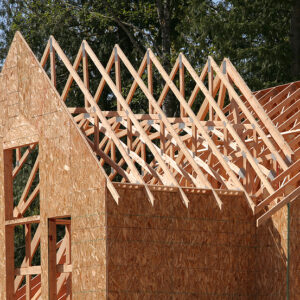It is no secret that New Hampshire is in the thick of a housing crisis.
If you are trying to build or renovate a home in 2024, you know it is already a massive feat on its own. Now, our energy codes, instead of being driven toward keeping New Hampshire homes safer and efficient, are being used to institute what can only be described as a Green Energy Tax on our middle and working-class residents. These are the very same people who are already drowning because of the runaway inflation of the past few years.
Instead of addressing these cost issues, the activist sector of our state has decided that the 2021 Energy Code is the place to force their Green New Deal political priorities onto the rest of us. This will only pass more costs on to you, the consumer.
When you add mandated changes and toss in solar panels for a “net zero” home this could add between $20,000 to $30,000 to your mortgage.
Typically, every third year the State of New Hampshire adopts a new set of building codes. These codes exist to ensure the state’s residents and homeowners are safe and have energy-efficient homes. As of today, New Hampshire is adhering to the 2018 building and energy codes. The state is poised to adopt the 2021 building code sometime this year, if it passes the legislature and is signed into law. The proposed building code updates make sense.
However, not all of the proposed codes will make sense for Granite State residents.
The proposed 2021 energy code does not make sense for New Hampshire, especially now. When these proposed new codes are written to serve no purpose other than to satisfy certain special interest groups that have no regard for our state or the people who live here, this is when we must say “no.”
Looking specifically at the 2021 Energy Code, there are certainly some concerns.
First, the changes haven’t been looked at critically enough. As we are pushing for better energy efficiency, we are depending on increasingly ‘integrated systems’, which may be great for new buildings, but older homes that are getting new additions/renovations need a much more careful approach. Rushing these changes without learning from others’ mistakes could lead to even more costly projects.
Second, we’re making these changes too fast. The three-year cycle for updating codes might be good for the people who make the rules, but not for those that must keep up with them. In New Hampshire, we have over 200 municipalities and very few of them are able to have dedicated building officials.
Lastly, and arguably most importantly, I worry that we’re changing our codes for the wrong reasons. Building codes were made to keep buildings safe and working properly and efficiently. Now, we’re expanding the scope of our codes to push for things like “net-zero” homes. While this may be a good goal, we should not be telling people what to spend their hard-earned money on. If they believe that a granite kitchen countertop or a finished basement or smart home integration is more important to them than triple pane windows or a residential sprinkler system, who are we to tell them otherwise? We should not be forcing builders to add things that people cannot afford. Offer extra efficiencies as an option, yes; shove through an unfunded societal mandate, no.
It is simply not a fair proposition to the homeowners and homebuyers of New Hampshire, and it goes against our very way of life here in the Granite State.
The proposed 2021 Energy Code may be well intended, but we need to be conscious of the unintended problems and consequences. Let’s get back to focusing on what’s best for New Hampshire. Join me and tell your elected representatives that these frivolous, and expensive, energy codes cannot pass!





